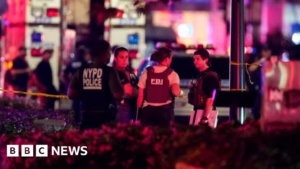Jewish leaders are urging the University of Edinburgh to uphold a disputed definition of anti-Semitism following the university’s revelation that it is reviewing its support for the definition. The institution had previously stated it could withdraw support for the definition endorsed by the International Holocaust Remembrance Alliance (IHRA), which critics argue restricts the discussion of issues related to Israel and Palestine.
The controversy came to the forefront after the release of a review of Edinburgh’s ties to transatlantic slavery and empire, which also urged the university to divest from companies involved in Israel’s military actions and to reconsider its stance on the IHRA definition.
The Union of Jewish Students (UJS) and the IHRA contend that the non-binding definition is a widely supported tool for identifying and combating anti-Semitism amongst British Jews and student communities. The UJS president, Louis Danker, pointed out that academics involved in the review should uphold the principle of self-definition for minority groups, including Jewish students.
The IHRA has expressed hope that any reviews of the definition consider the purpose and importance of the working definition in safeguarding Jewish communities. Edinburgh’s Principal, Peter Mathieson, highlighted that the university is in the process of examining its investments and definition stance, brought to attention before the review’s recommendations but hasn’t arrived at a final decision.
Perspectives on the IHRA definition vary; Vincent Fean, a former consul general to Jerusalem, prefers a different text—the Jerusalem Declaration on Anti-Semitism—which he believes better distinguishes between criticism of Israel and anti-Jewish sentiment. Also, activist groups have voiced their opposition to the IHRA definition, suggesting it stifles legitimate criticism of Israel.
In response to its historical review, the university plans to enhance its efforts towards decolonizing its curriculum and creating an environment that better represents diversity. Recommendations include highlighting decolonization in undergraduate courses and establishing a research center for the study of racisms and colonialism.
Despite Scotland’s lower diversity compared to other parts of the UK, the university aspires to become an attractive institution for Black scholars and students. However, data indicates a severe lack of diversity, with less than 1% of staff and about 2% of students identifying as Black.
Following the review, academics have also called for more funding to follow up on new evidence of the university’s historical connections to transatlantic slavery and colonization, indicating that the sums of money possibly tied to such activities may be much higher than initially reported. The researchers identified a significant amount of untapped information within the university’s archives and suggested hiring archivists to assist in cataloguing and accessing these documents. Scotland’s history of imperialism and Atlantic slavery is pivotal to understanding the region’s past, according to Dr. Simon Buck, a lead researcher in the inquiry.
Source: https://www.theguardian.com/education/2025/jul/29/jewish-leaders-urge-edinburgh-university-uphold-antisemitism-definition







